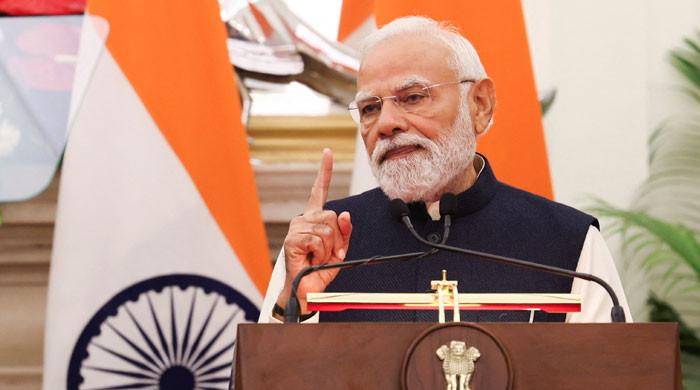Clashes outside Greek parliament ahead of budget vote
ATHENS: Protesters clashed with police outside Greece's parliament Tuesday as lawmakers were to approve a tough 2012 budget to seal unpopular austerity measures demanded by EU partners in return for...
December 07, 2011
The violence broke out as thousands of pupils, students and leftist supporters staged separate demonstrations in memory of a schoolboy whose fatal shooting by police had sparked nationwide riots three years ago.
Protesters wearing gas masks and goggles threw firebombs and marble shards broken off from nearby buildings at police, who responded with tear gas and stun grenades to push them back, AFP reporters said.
Nearly 20 people including over a dozen officers were injured during an earlier bout of midday clashes and police said they had made 11 arrests.
Police held another 10 people in Thessaloniki after smaller-scale incidents.
Gatherings were also held in Volos and other Greek cities.
The government had warned during the budget debate that the stakes could not be higher for the country amid a debt crisis which has upended the economy and threatened the eurozone despite the best efforts of the EU, IMF and Athens to stabilise its finances.
"A real earthquake is occurring in Europe at this moment," said conservative leader Antonis Samaras, one of the political partners backing the interim government set up last month to secure approval of a eurozone debt deal.
"We don't know where it will lead (so) we are in a hurry for Greece to capitalise as much as it can today," said Samaras, whose party holds a solid lead in the polls ahead of snap elections expected early next year.
Culture Minister Pavlos Geroulanos added: "Unemployment in our country has climbed to nearly 20 percent and seven in ten Greeks fear they will lose their jobs ... fear and insecurity over tomorrow have pinned down our society."
A leading labour expert on Tuesday warned that a decade of hardship lay ahead.
"The Greek population will undergo ten years of enormous sacrifice," Savvas Robolis, director of the labour institute of main Greek union GSEE, told AFP.
"This austerity policy has led to an absolute impasse," he said, warning that with no growth next year, Greece will have totalled five years of recession.
The vote should be won easily but it could not come at a more sensitive time for the eurozone after Standard & Poor's warned it could cut its credit ratings on the bloc, throwing another twist into the debt crisis.
Germany and France are leading the charge for major change in the way the bloc is run to ensure much tighter fiscal oversight from Brussels and reacted sharply to S&P on Tuesday, saying they would push ahead with the needed reforms.
An EU summit on Thursday and Friday is intended to agree deep institutional changes to stop the debt crisis which has pushed Greece, then Ireland and Portugal into EU-IMF debt bailouts and now threatens Italy and Spain.
Greek Finance Minister Evangelos Venizelos told the assembly on Monday that the budget, required by the EU and IMF in return for fresh rescue funds, would put government finances on a much sounder basis.
"This parliament has the chance to go down in the country's fiscal history as the first that reduced public debt," he said.
Prime Minister Lucas Papademos, a former European Central Bank deputy chief considered to be a safe pair of hands, leads a coalition government with more than 250 out of the 300 seats in parliament.
Assuming power last month after Socialist predecessor George Papandreou faced a parliamentary revolt over new austerity measures, Papademos was chosen to deliver the Greek side of the country's debt rescue bargain.
The key issue will be implementation after Greece missed deficit and debt targets laid down in a first EU and IMF rescue in May 2010 and was then forced to seek more help as the economy slumped.
A second accord agreed in late October requires Greece to adopt even tougher austerity measures in return for new funding of 100 billion euros and a controversial debt write-down deal with creditor banks worth 100 billion euros.
The accord also makes available 30 billion euros to help local banks cover the losses on their holdings of Greek government bonds caused by the 50-percent bond write-down.
The budget puts the public deficit at 5.4 percent of gross domestic product (GDP) in 2012, down from 9.0 percent this year, compared with the EU ceiling of 3.0 percent and the previous forecast for next year of 6.8 percent.
It is based on the economy shrinking 2.8 percent in a third year of recession, worse than the previous 2012 estimate of 2.5 percent but still much better than the expected 5.5 percent contraction for 2011. (AFP)









